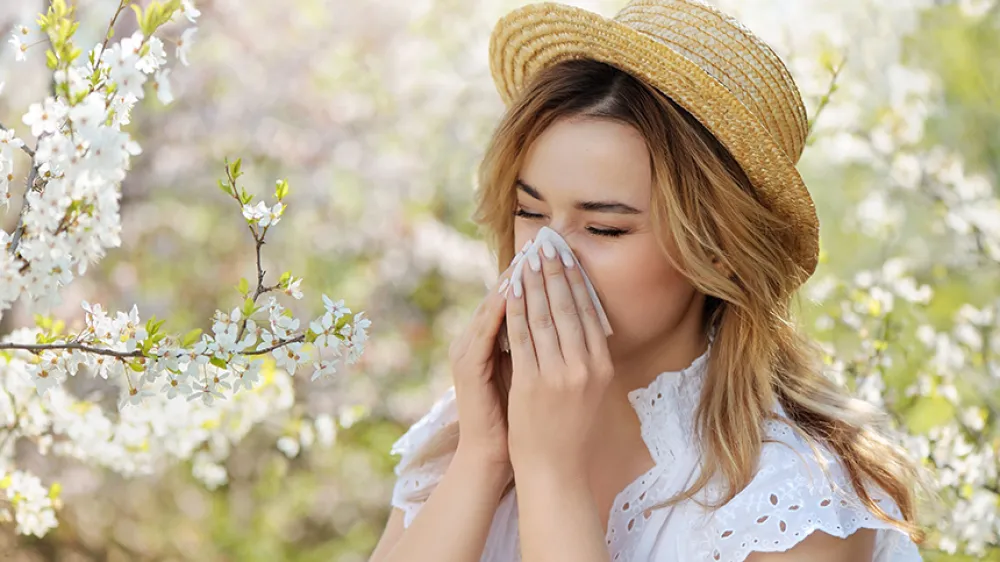Providing your location allows us to show you nearby locations and doctors.
Q&A: Spring allergy tips during the pandemic

03/27/2022
Allergies can be severe and interrupt daily life, causing work and school absenteeism, inability to focus, difficulty sleeping, and overall miserable days. Nuvance Health Medical Practice Family Medicine's Sejal Parekh, DO, shares her advice on how to best manage allergies:
When do spring allergies start?
Spring allergies begin in February and last until the early summer, when hot, dry weather gives allergies sufferers a short reprieve.
What triggers spring allergies? How do the triggers change as we move into late Spring?
Allergy triggers are: tree pollen in late February or early March; grass pollen in April, May and June; and weed pollens and ragweed in the early fall.
What are allergies symptoms?
Seasonal allergies typically cause itchy eyes and itchy throat, sometimes a dry cough and typically a runny nose or watery eyes. There is also a link between migraines and allergies.
Can you tell allergies from COVID symptoms?
COVID-19 often causes fever, body aches, fatigue or muscle aches, which don't usually happen with allergies. You may also experience shortness of breath or difficulty breathing with COVID-19. While you can have a runny nose with both allergies and COVID-19, you don't lose sense of smell or taste with allergies like you might with COVID-19. COVID-19 may also come with nausea, vomiting and/or diarrhea. Unfortunately, you can also have allergies and a viral infection at the same time. If you have classic allergy signs like itchy eyes and a runny nose along with COVID-19 symptoms like fatigue and a fever, call your doctor.
What is the best way to manage spring allergies?
Some behavioral modifications can help. Try to stay indoors whenever the pollen count is very high. Keep doors and windows closed. Clean home air filters often. Shower and change clothes after outdoor activity. Vacuum twice a week. Medication management may help. Over-the-counter non-drowsy oral antihistamines, intranasal steroid sprays, decongestants and allergy eye drops can all be used to help manage symptoms.
When is it time to see a doctor about allergies?
If trying over-the-counter medications haven't worked, then seeing your doctor about allergy shots may be beneficial.
Dr. Sejal Parekh is a family medicine doctor based in Wilton, Conn. You can search for a primary care provider near you and book an appointment here. Learn more about primary care here.
